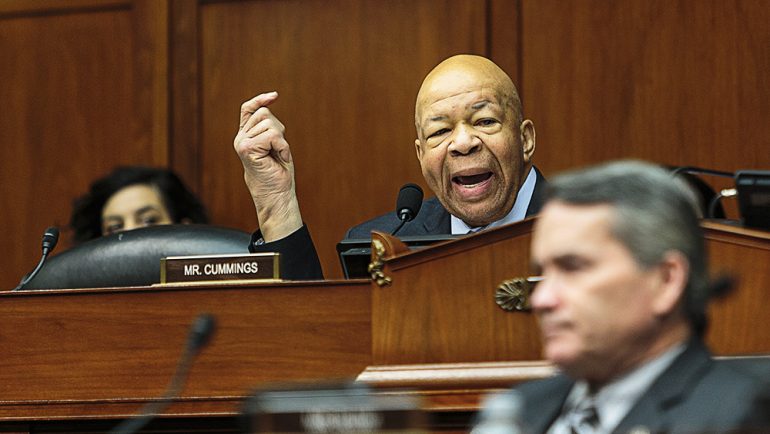WASHINGTON — A new bill that would add transparency to the process of funding presidential libraries has passed the House of Representatives with bipartisan support.
The Presidential Library Donation Reform Act of 2019, introduced by Rep. Elijah E. Cummings, D-Baltimore, and approved by the House last week, would require presidents to disclose to the public the sources and amounts of all donations to their presidential libraries exceeding $200.
“Right now, a president — while still in office — can raise unlimited amounts of money for a presidential library from private donations,” Cummings said, “and the identities of all the donors can remain secret.”
Every president since Herbert Hoover has a library in his name, but funding for the construction of these institutions often comes anonymously from private organizations.
The National Archives and Records Administration maintains responsibility for the upkeep and budget management of the libraries, but funding for the construction of the libraries can come from anywhere and everywhere.
Former President Bill Clinton received 10 percent of the total funding for his library — at a price tag of $165 million — from foreign sources. The royal family of Saudi Arabia donated roughly $10 million to Clinton’s library, as well as to former President George H.W. Bush’s library, according to a Washington Post report.
Although some past presidents have disclosed the sources of their libraries’ funding — former President Barack Obama voluntarily released the names of his library donors whose contributions totaled $200 or more — disclosure of large contributions is not presently required.
“While I applaud President Obama’s efforts at transparency,” Cummings said in his opening statement to the House, “we cannot rely on every president to voluntarily disclose donor information.”
Former Rep. John J. Duncan, R-Tennessee, was one of the earliest champions of presidential library reform. Duncan began proposing similar legislation in 1999 after learning of Clinton’s foreign library contributions, and he introduced presidential library reform bills nearly every session after that before leaving Congress in 2019.
Past versions of the bipartisan bill have passed the House five times, but in the instances similar measures have been introduced to the Senate, the legislation has died on the floor without going to a vote.
Daniel Schuman, policy director for a government transparency reform group called Demand Progress, supports the legislation, but believes it could go even further in the future.
“It goes as far as is politically possible at the moment,” Schuman said. “There should be a limit on who and how much they can donate, but transparency on who and how much is a good step.”
The cost of recent presidential libraries has soared into the hundreds of millions of dollars.
The George W. Bush Presidential Center, at Southern Methodist University in Dallas, boasted an estimated price tag of $250 million. Obama initially set out to raise $1 billion for the Obama Center in Chicago, which will host his presidential library, a museum, a public forum and an athletic center.
“Given presidents can lawfully solicit unlimited donations for their libraries while still in office, the public should be able to know basic information about these donations,” Rep. Mark Meadows, R-North Carolina, said.
Despite passing through the House with bipartisan support in just two days, the reform bill’s future in the Senate is uncertain. But if recent history is any indication, the measure faces a tougher challenge.
The bill currently is in the Senate Homeland Security and Governmental Affairs Committee.
“If it comes to a vote,” Schuman said. “It would pass.”

